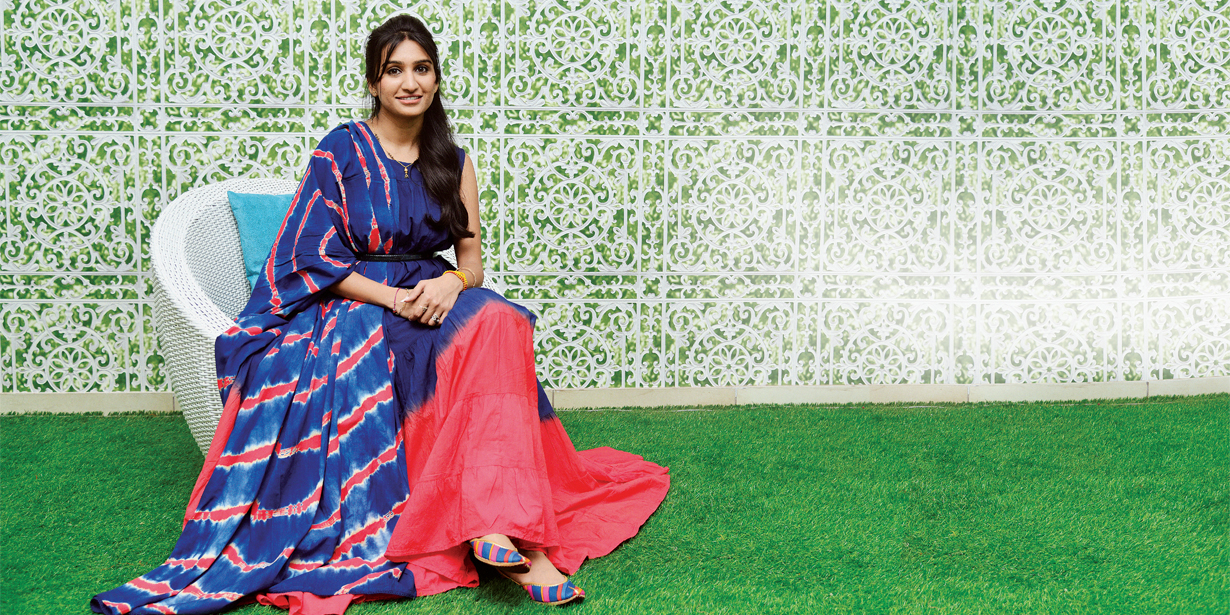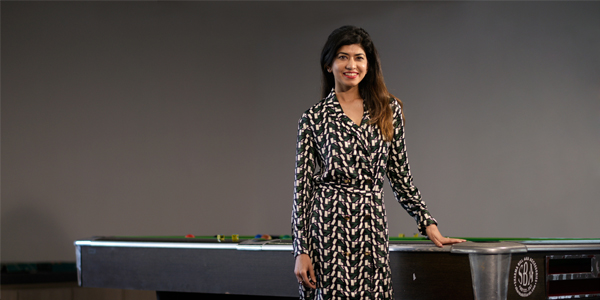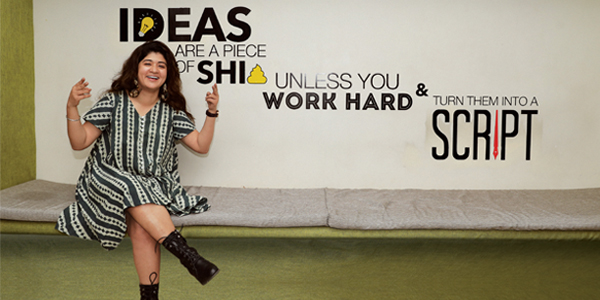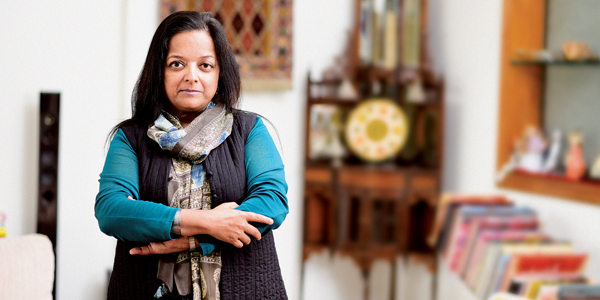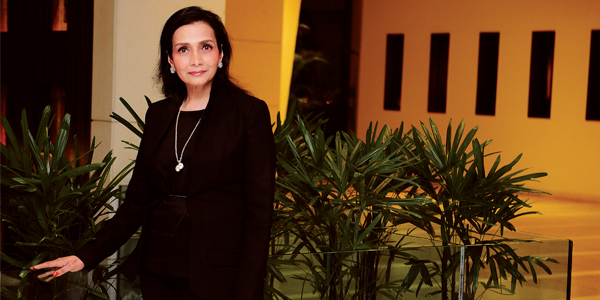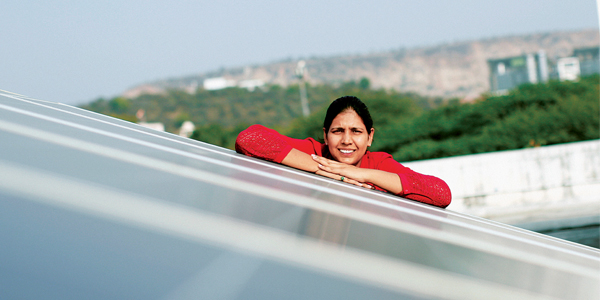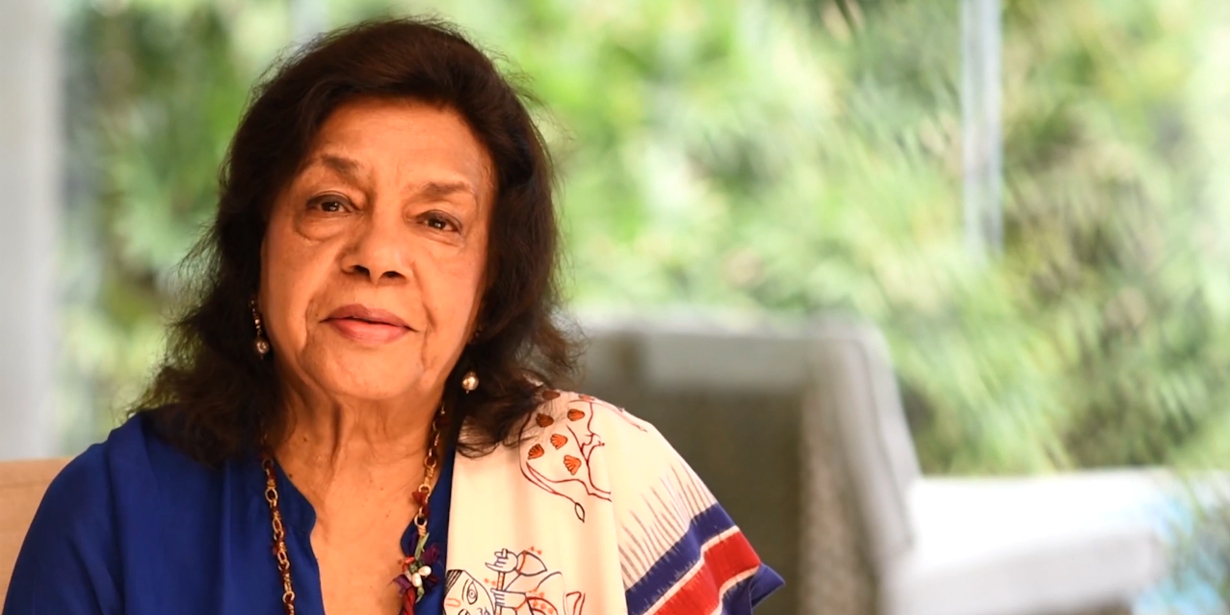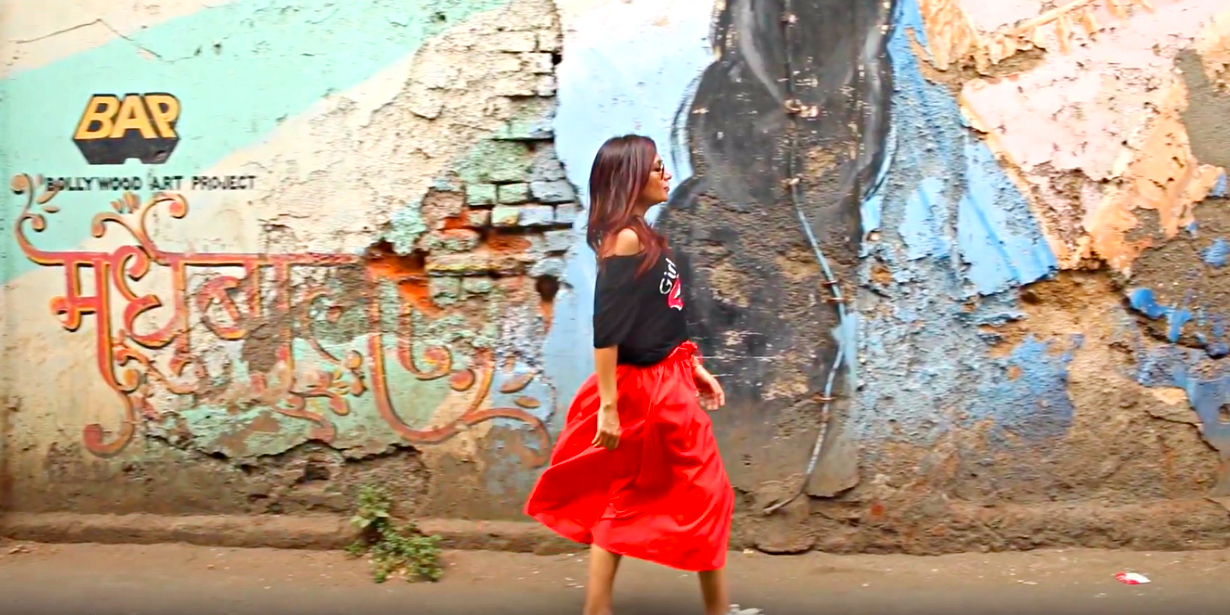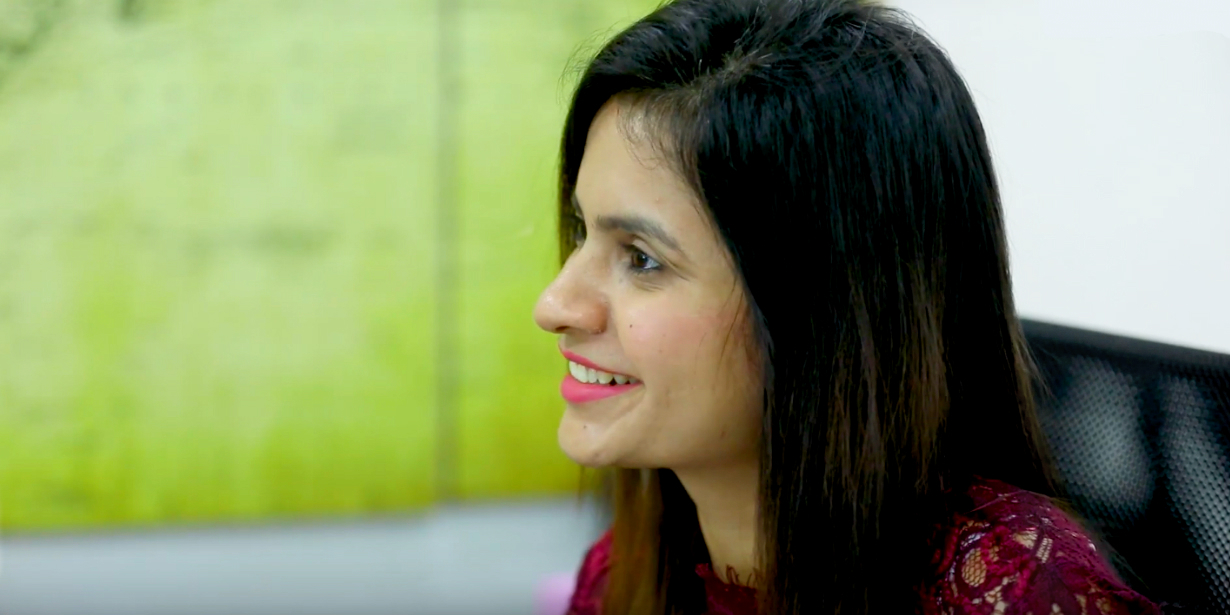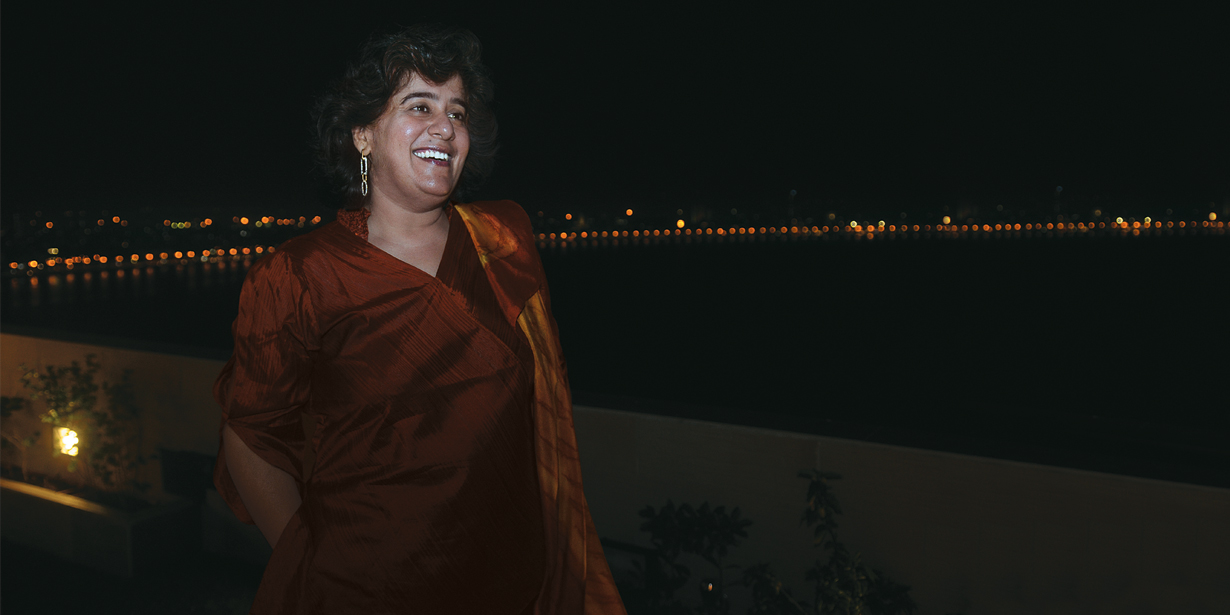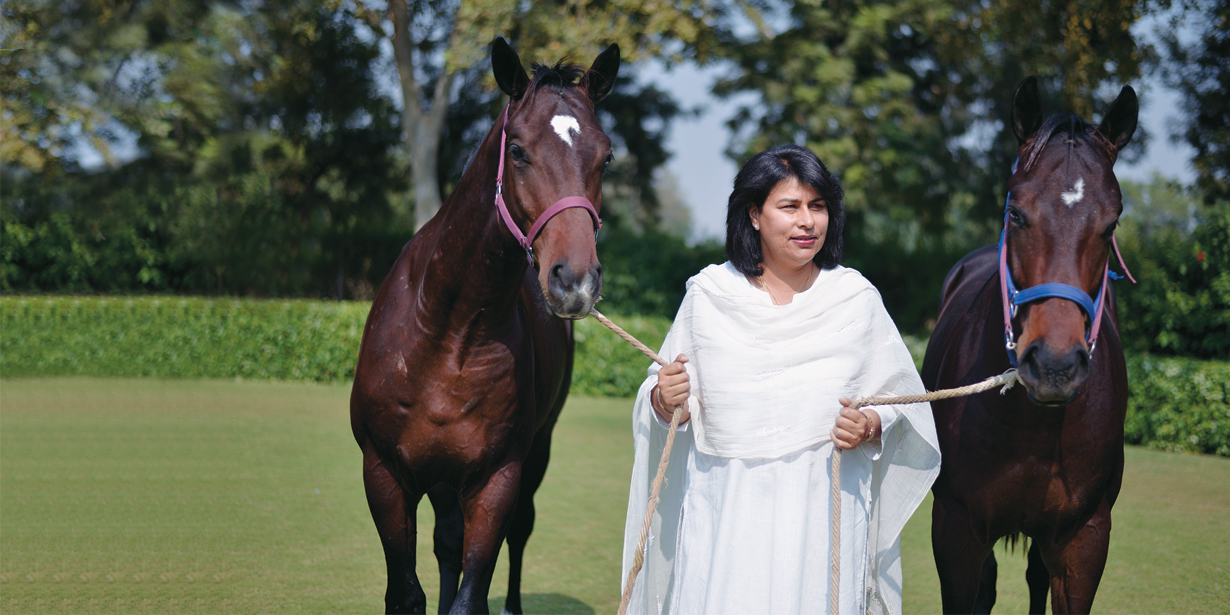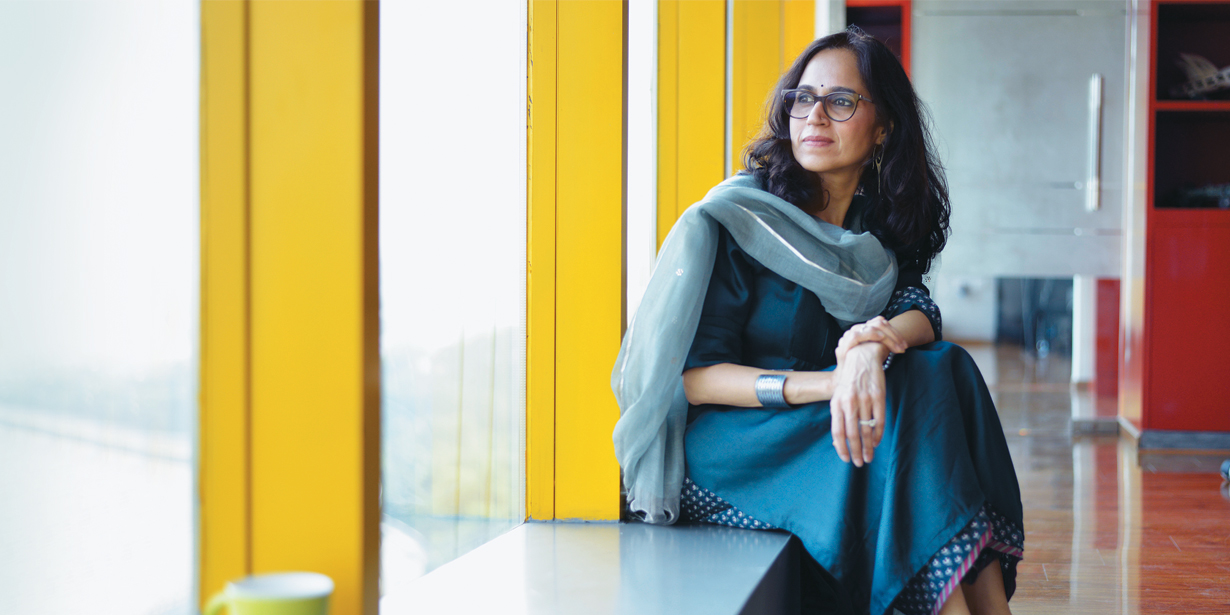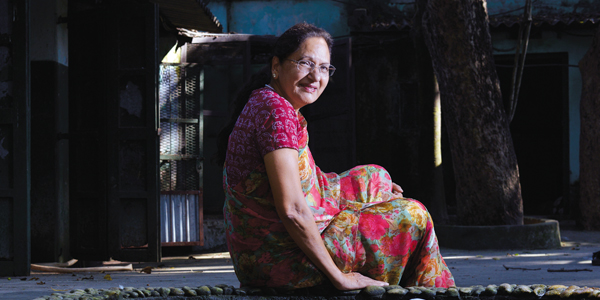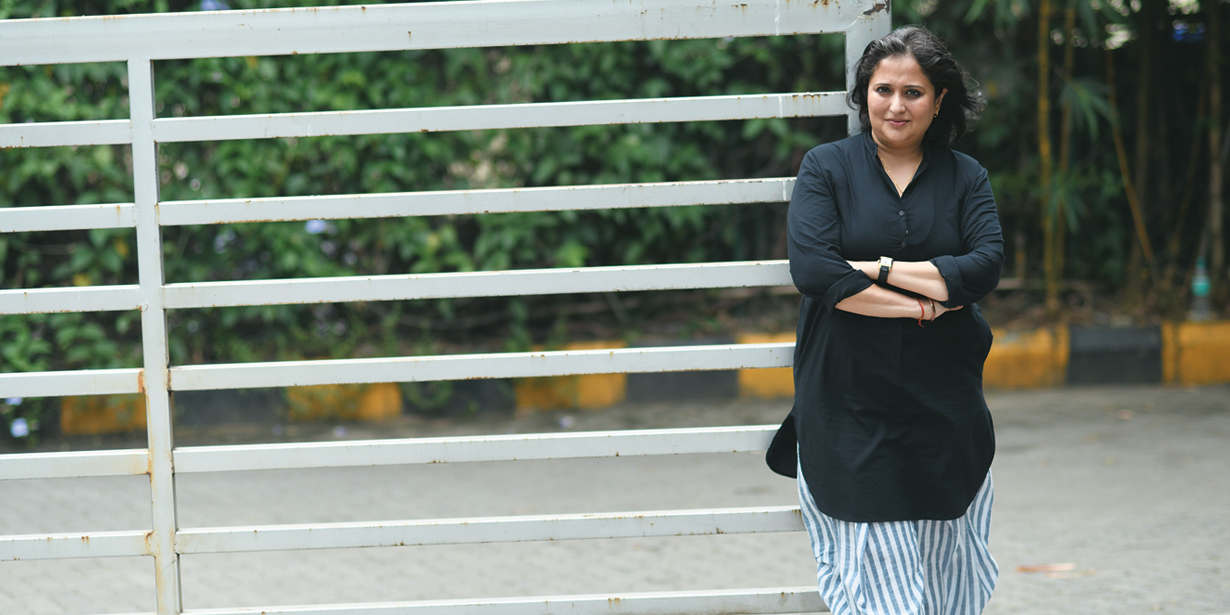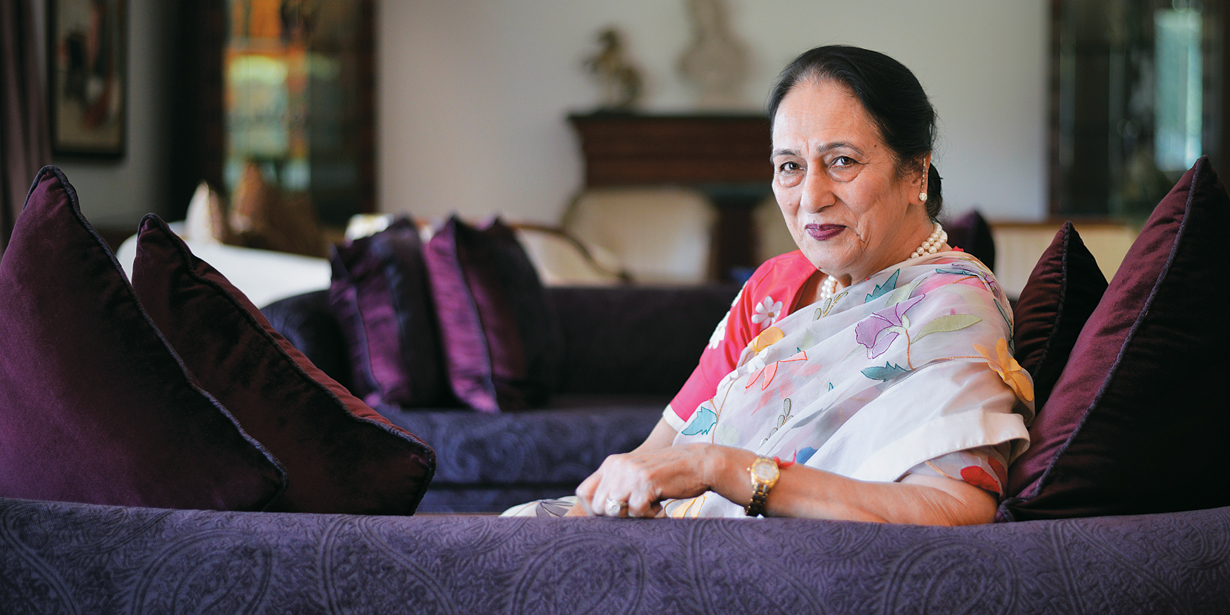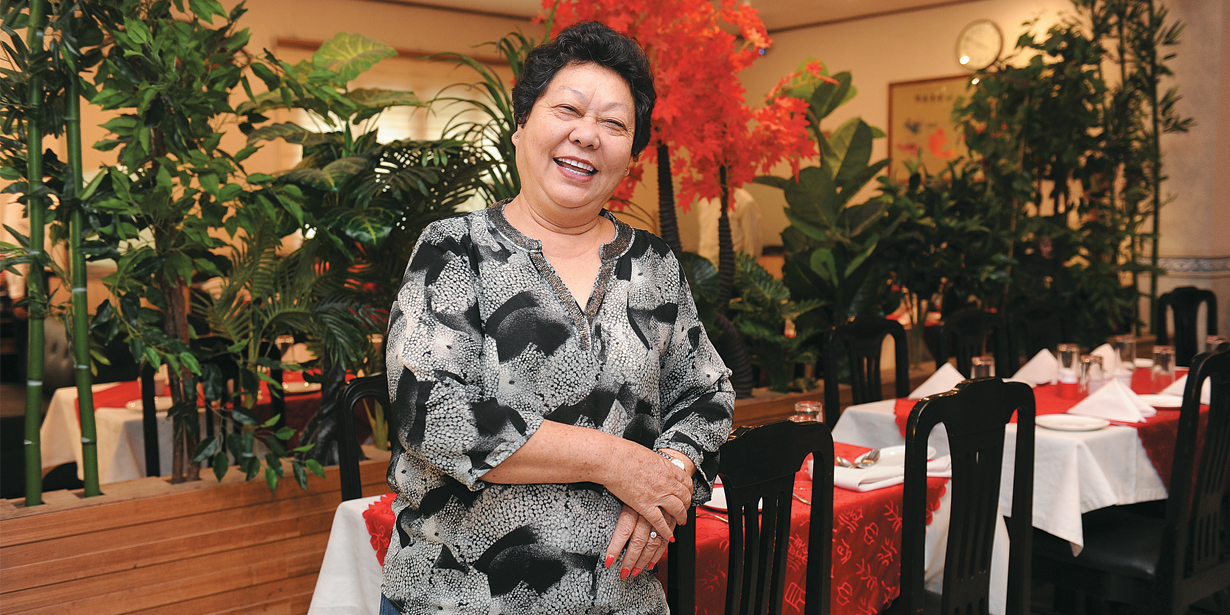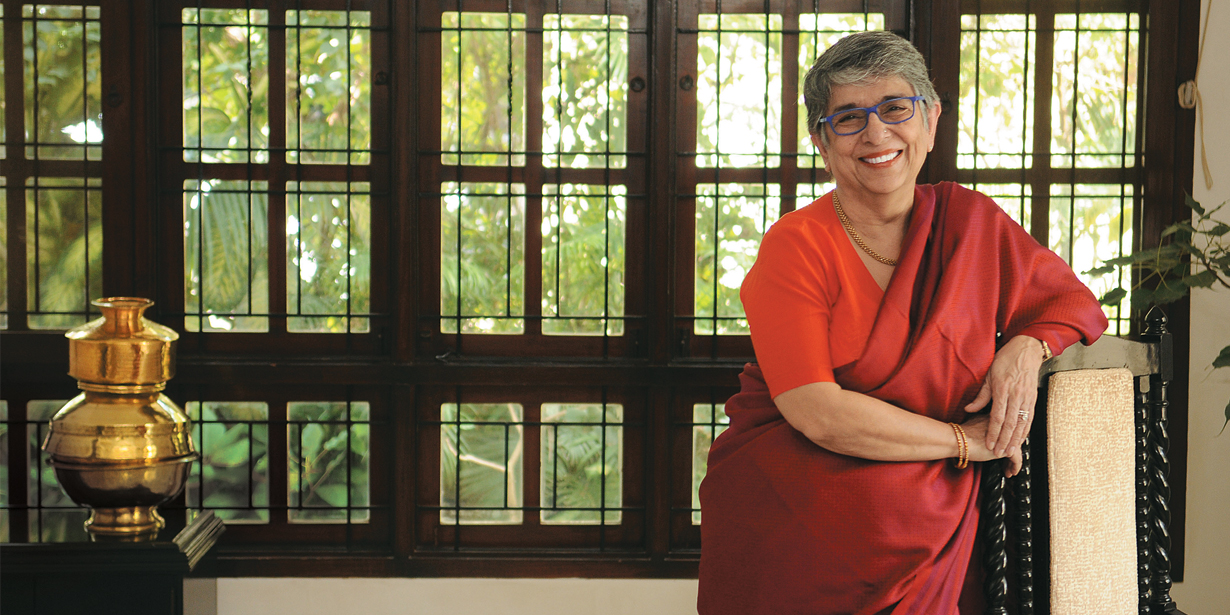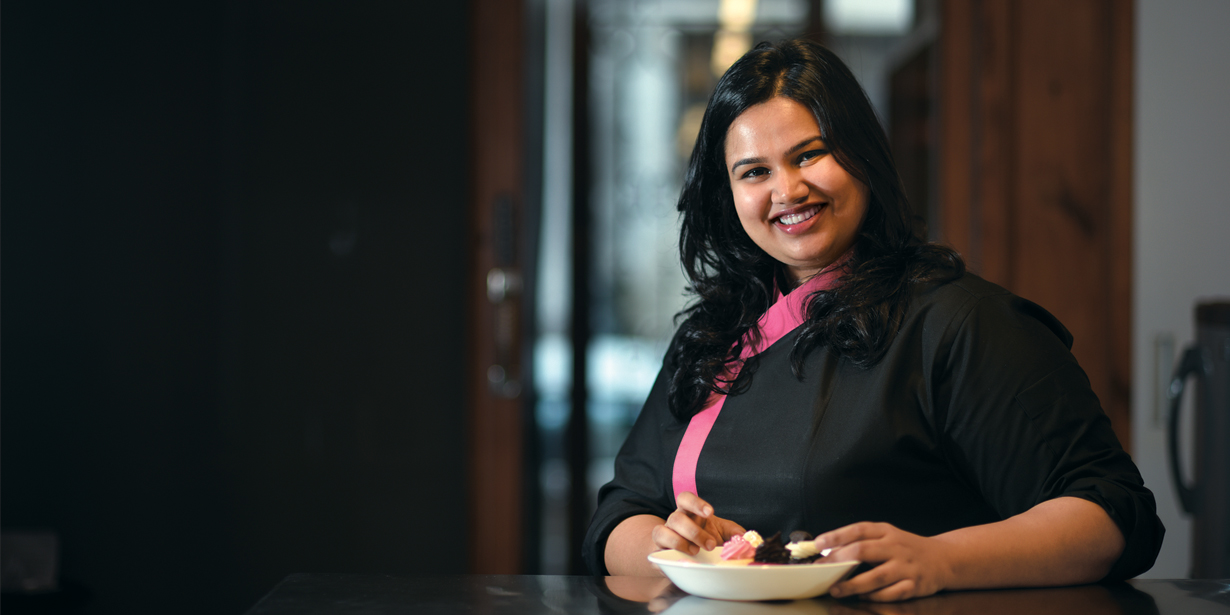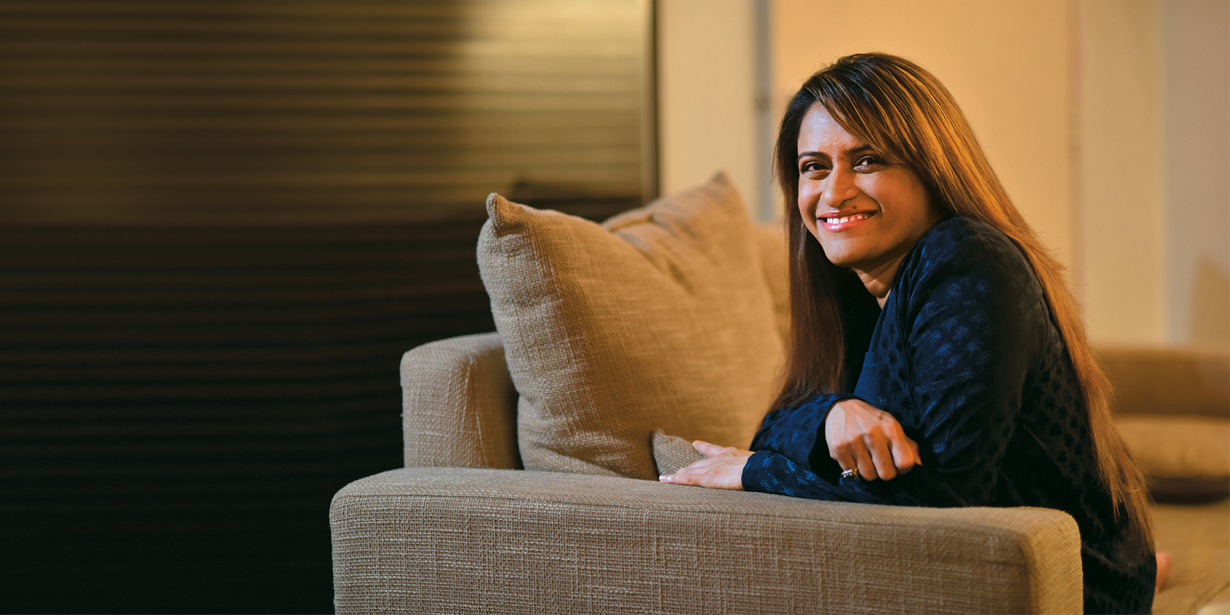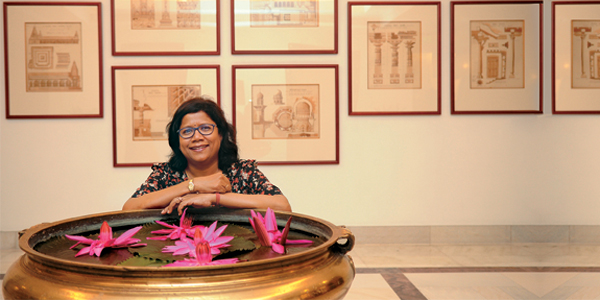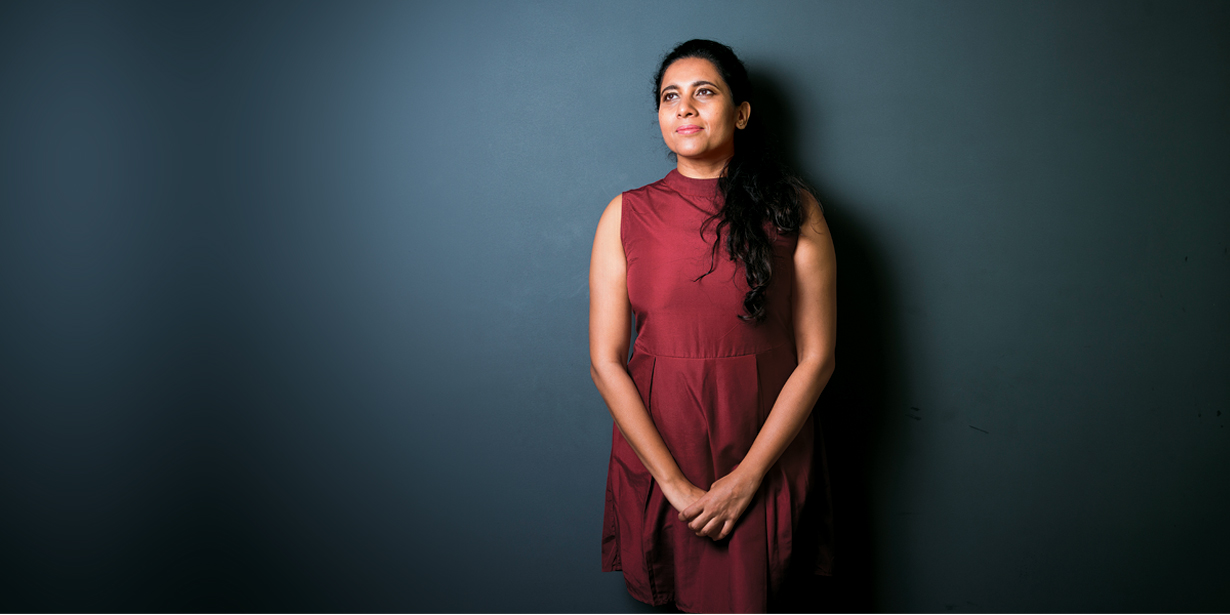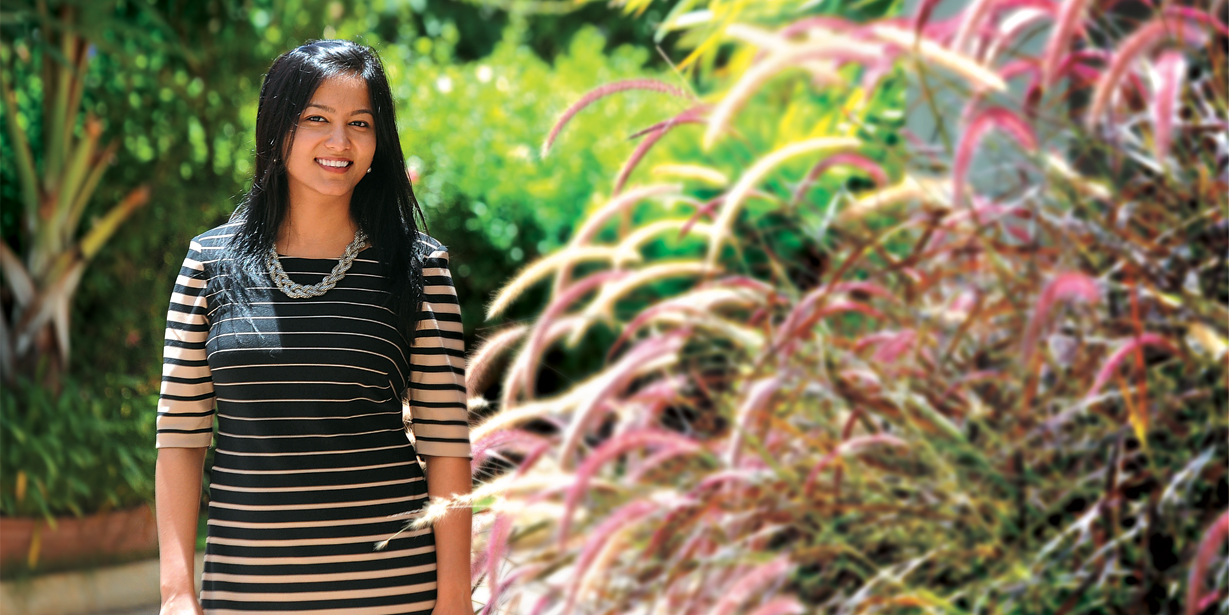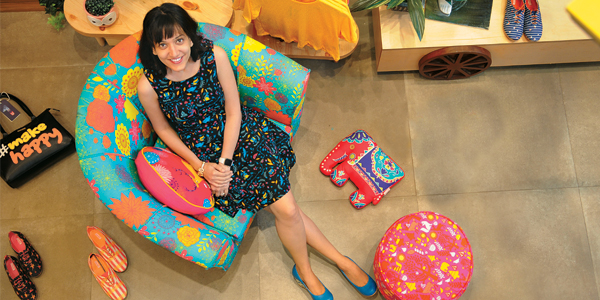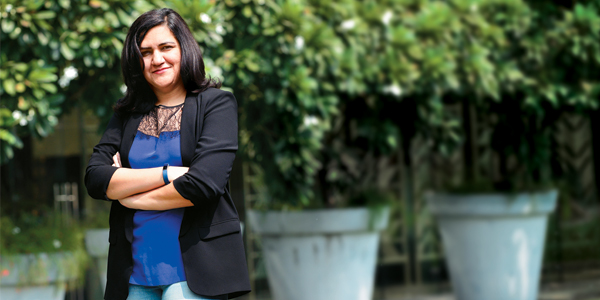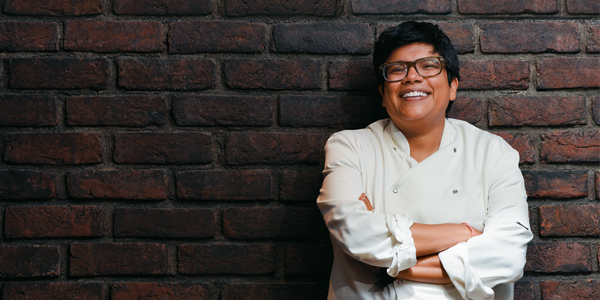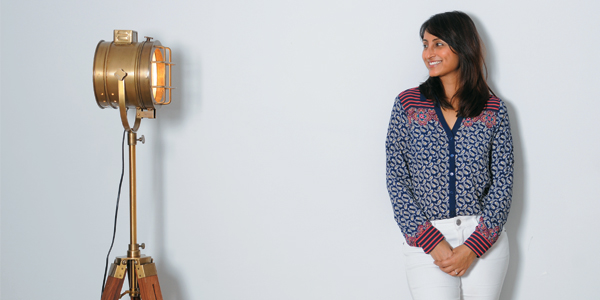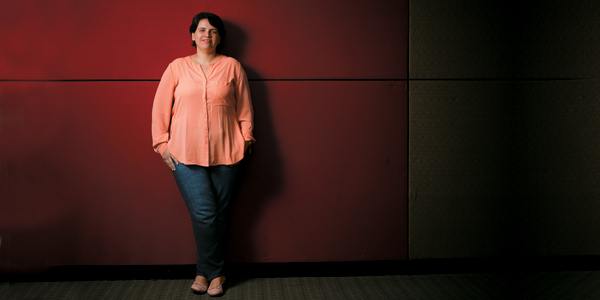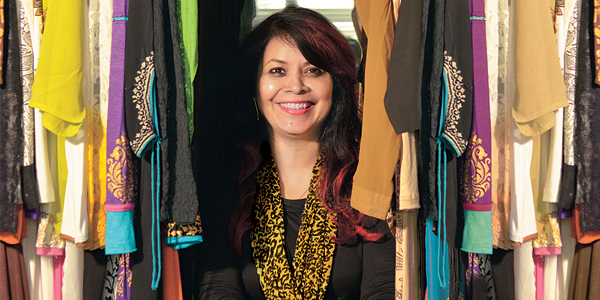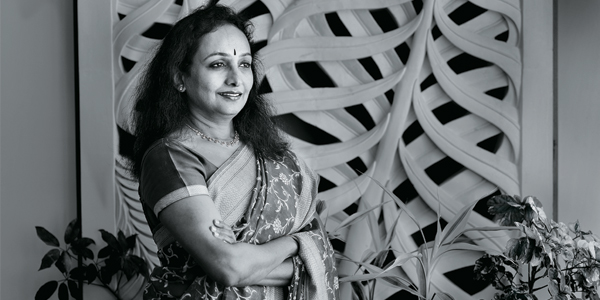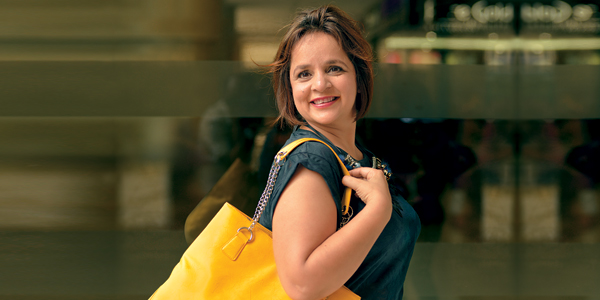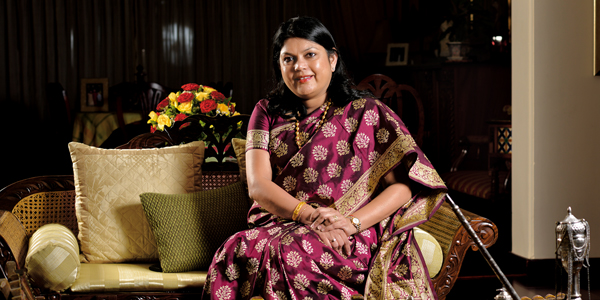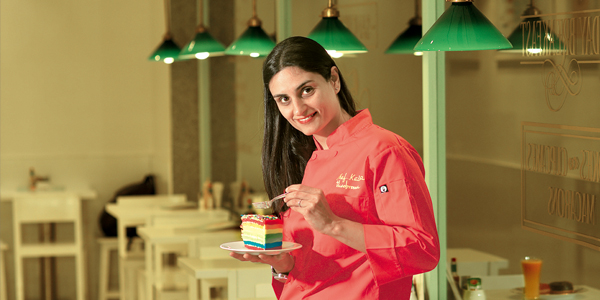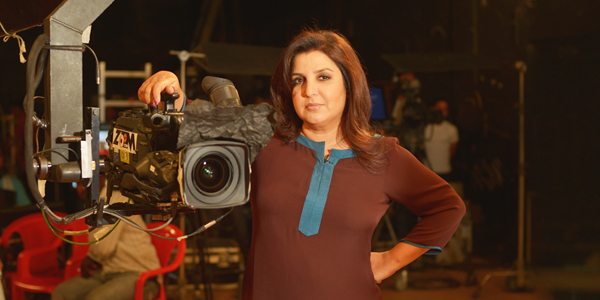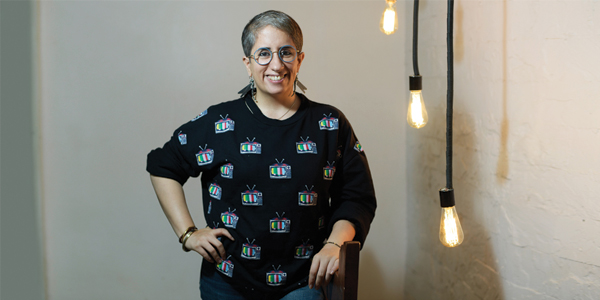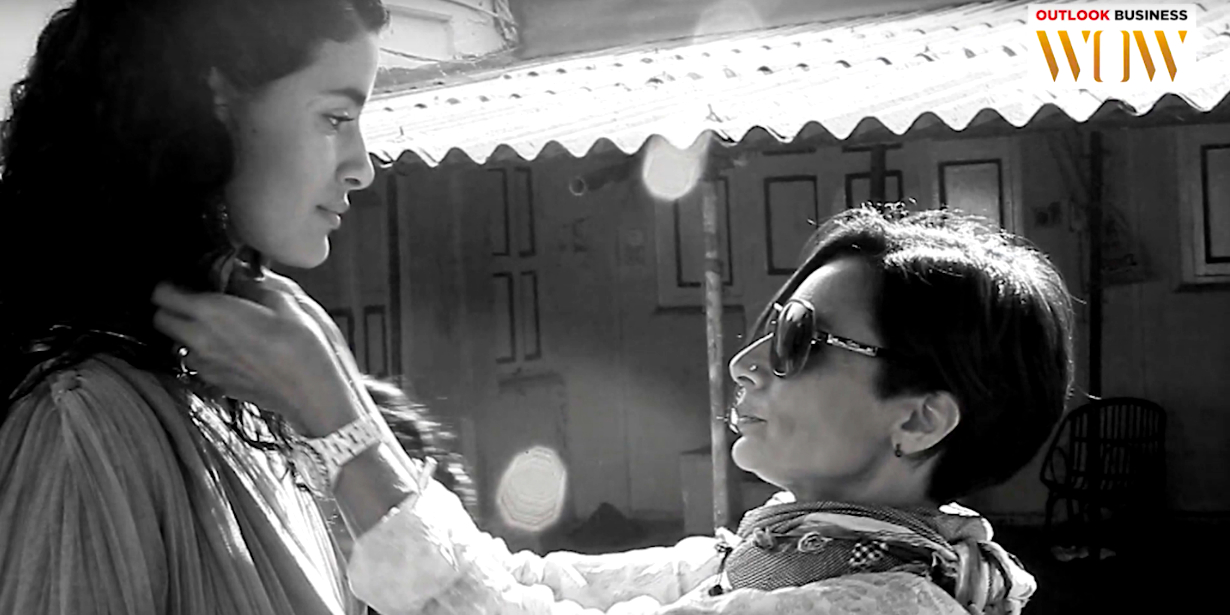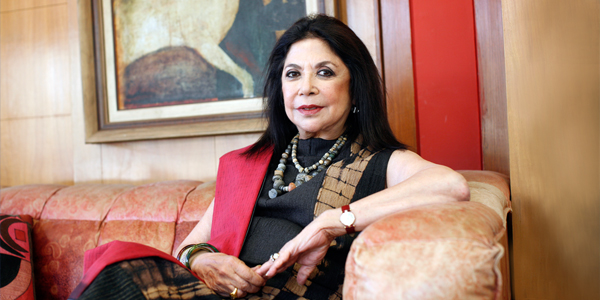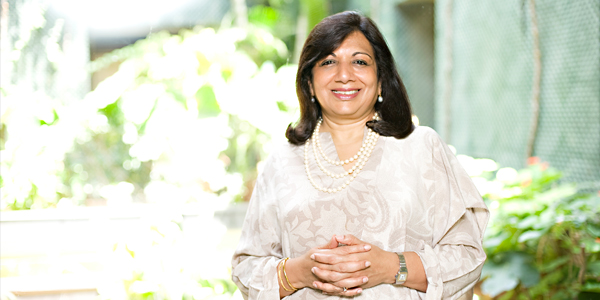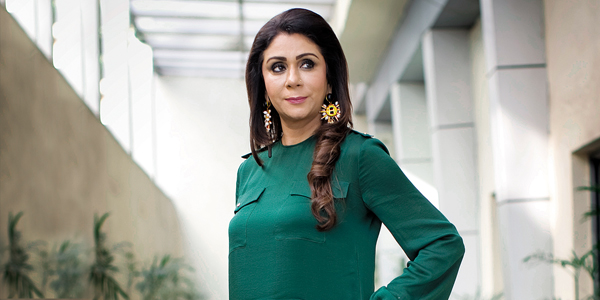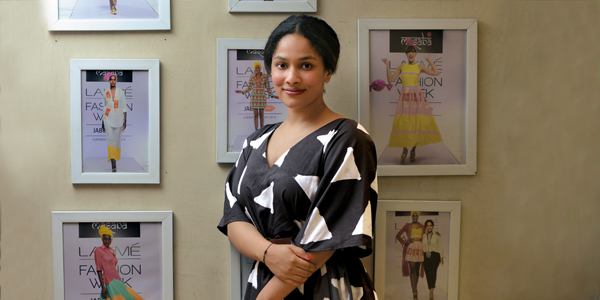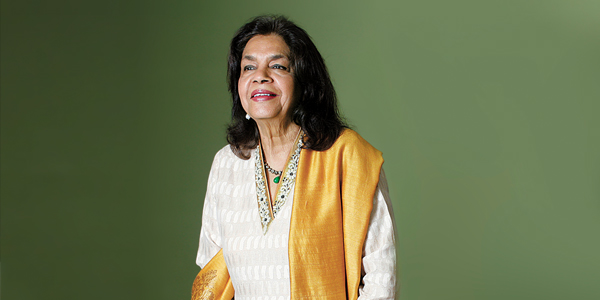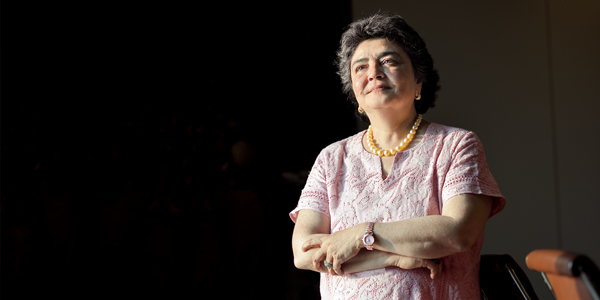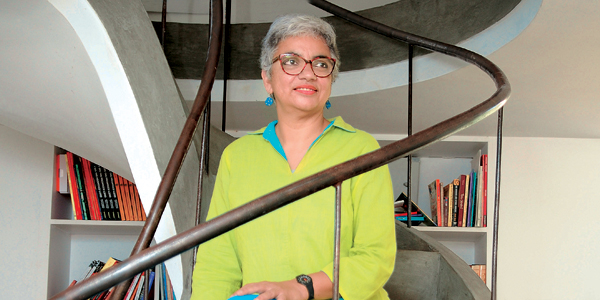Dream catcher
Nidhi Yadav, the brain behind the Rs. 1-billion womenswear brand Aks, can spot a trend a mile away and that’s her secret
A truck waits near the entrance to a building in Gurugram’s Palam Vihar area. Workers are busy loading hundreds of packages of what appears to be apparel. The place is buzzing. Inside, the corridor is lined with stacks of packets and, as the lift doors open, more are brought in. Nidhi Yadav, co-founder of Yuvdhi Apparels that trades in AKS Clothings brand, has her office on the third floor. It is really an office-cum-warehouse, with hundreds of samples of womenswear, hanging or racked. The space is not showy and it reflects a solid business in the making. The less-than-five-years-old online women’s fashion brand has already crossed Rs.1 billion in sales, and is on the way to do an impressive Rs. 1.3 billion by the end of FY19.
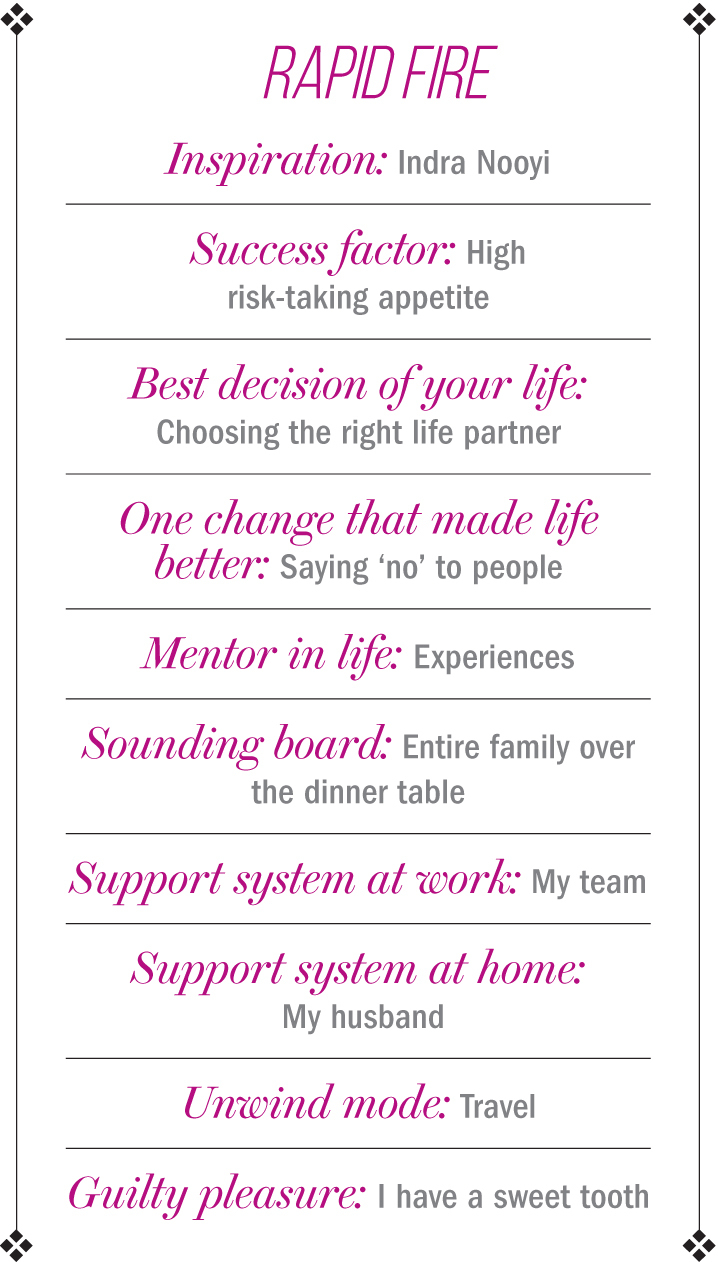 If great start-ups were built from garages in the Silicon Valley, in India, they can very well be from a living room. “When we started in 2014, we had a two-room house. We would keep our stock in one of our rooms and use the other to sleep,” Yadav recalls with a smile. Thanks to the success of her brand and her spirit of hustle, the couple has moved to a bigger place now.
If great start-ups were built from garages in the Silicon Valley, in India, they can very well be from a living room. “When we started in 2014, we had a two-room house. We would keep our stock in one of our rooms and use the other to sleep,” Yadav recalls with a smile. Thanks to the success of her brand and her spirit of hustle, the couple has moved to a bigger place now.
There are stories of hardship. “I would carry my 18–month-old daughter everywhere I went to negotiate with the sellers, during the initial phase of my business. And this went on for a while. My daughter started remembering name of prints and surprised me later. She is five now and she knows the jargon such as ‘inventory’ and ‘dispatch’, and our competitors’ brand names,” says Yadav.
While her daughter will have a right to choose her calling, Yadav herself wasn’t so lucky. “I was born into a middle class family. Both my parents are lawyers in Indore. Fifteen years back, children were told to become either engineers or do an MBA,” says Yadav. She graduated in engineering and joined Deloitte in Hyderabad. Eighteen months later, at a review presentation, things began to fall apart. “My seniors asked me about job satisfaction and I said I didn’t have that. The managers figured out that I was only hanging on because it was a good company,” she says. Soon, she was advised to leave and figure out what she wanted to do. She took a break.
During this time, Yadav happened to watch the Meryl Streep-starrer The Devil Wears Prada. She was bowled over, by the subject and characters in the movie. The story revolves around two women in the fashion industry and their struggles. Yadav realised that she too wanted to be in that world, but she had no idea how to break into it. Like all those who are lost, she googled.
She looked up fashion-related programmes offered across the world. Eventually, one offered by Polimoda, a private fashion school in Florence, Italy, ticked all the boxes for her. The programme wasn’t for designing but more for marketing fashion, the commercial side of it.
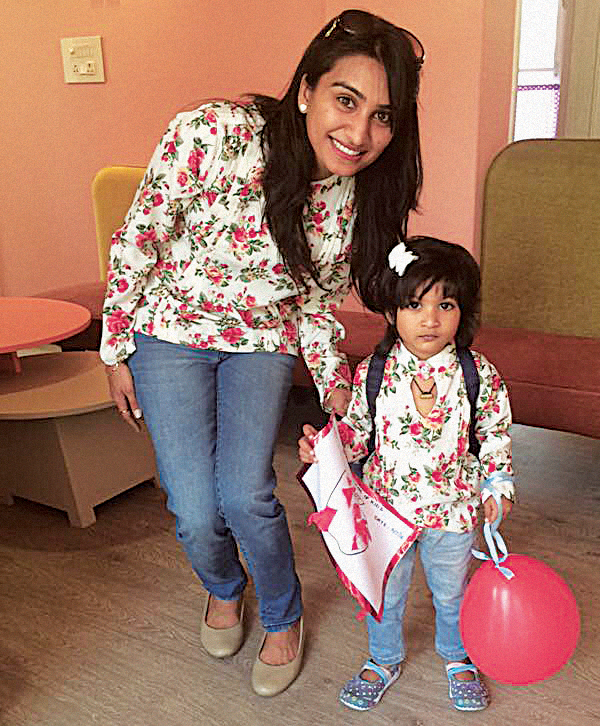
As part of the course, Yadav interned at Emilio Pucci. “They were creating a museum and I curated their collections, right from 1940s to present. This knowledge has helped me in my current business, to curate a collection,” she says. In 2011, she decided to return to India. “I was already homesick,” she says.
Her parents wanted her to get married and began scouting for boys within their community and on matrimony sites. But Yadav didn’t like anyone they picked out. She found her future husband Satpal Yadav on LinkedIn. He was working with Jabong in Gurugram at that time. They got married in 2012 and their daughter was born in 2013.
After the birth of their child, he started encouraging Yadav to do something entrepreneurial. She had spent time at a Zara store during her training days and wanted to start something related to fast fashion in western wear. “I used to spend six to seven hours a day at their store in Italy. I have seen their collections and garments inside out,” she says. However, her husband wisely advised her to focus on ethnic womenswear since it was far less competitive.
It was smart logic, but the couple had a discouraging start. They gave Rs.500,000 to a known person to buy the initial stock but that person didn’t keep the promise, and returned the money after a year.
This setback did not deter Yadav. In December 2013, she started making trips to Jaipur to meet with ethnic wear suppliers. The couple invested another Rs.350,000 to buy directly from them.
It was very difficult to crack suppliers. “They did not take us seriously because we were asking for only 25-30 pieces. Then I got hold of suppliers who had leftover inventory from bigger orders,” says Yadav. “After a few months of hard work, I cherry picked some designs and went live with 936 pieces on Jabong, in May 2014,” she says. On the first day, they got three orders. The next day, it was 13 and, on day three, it was 39. Their collection gained good momentum. “By the end of our first year, we had done a business of Rs.16 million,” informs Yadav. Jabong had onboarded them with a 40% margin, which was the standard for new sellers.
What is it that clicked for Yadav’s brand? One thing was a low entry-level price point of Rs.499. “Five years later, online customers have graduated to higher price points such as Rs.899 and above,” says Yadav.
But right pricing is only half the story. Right collections form the other half. “I knew how Zara and H&M work. Unlike other brands, Zara makes customer return to their store twice a month by bringing in new collections. I worked hard to have a new collection every 15 days on our online platform,” says Yadav.
The couple visited Jaipur every weekend and figured out a few sick units, which had the infrastructure but no orders to sustain manufacturing. “We promised them constant orders and, in return, took a commitment from them to work as our captive units,” she says. The brand currently works with ten captive suppliers.
Yadav actively works with her suppliers for new designs. One of the successful collaborations was a women’s ethnic maxi made from a saree. “We had launched sarees under the Om brand, which didn’t work well, and there was leftover stock,” she says. The dress became a bestseller. Only Global Desi was selling a similar design. “Their price point was Rs.2,999 and ours was Rs.1,699,” she says. Ethnic maxis contribute 30% to company’s overall revenue to this day. Kurtis form their largest category, contributing 50% to sales.
Yadav is not a trained designer but she has an eye for trends. She saw Karisma Kapoor wearing dhoti and kurta, liked it and launched it as a collection. “Nobody was making dhoti-kurtas in August 2014,” she claims. While watching Happy New Year, she loved Deepika’s pretty yellow anarkali. “I alerted my supplier and they created a sample overnight. The inventory was made in seven days and we sold that for a year.” The speed with which new designs are churned out is a differentiator of the brand. Around 50% of their collection is always new and the other 50% is made of pieces that sell the most.
Noticing AKS’ success on Jabong, Myntra too knocked on their door. The online retailer onboarded AKS in 2015 and there has been no looking back for Yadav. Sixty percent of the brand’s sales today happen on Myntra. Having performed consistently over Myntra, she was selected for the platform’s accelerator programme in 2017.

The programme’s idea is to turn this label into a national brand. “The target is to become a Rs.5-billion brand in three years. We have been provided a green channel in terms of cataloguing, payments and so on, as opposed to other sellers, and Myntra gives us more visibility and insights into customer behaviour and competing brands too,” she says.
Dreaming big
AKS has also reached out to Flipkart. It currently contributes 8% to brand’s sales but this is expected to go up in the coming year. “Flipkart is altogether a different animal,” says Yadav. “In Myntra and Jabong, the courier comes to you twice or thrice a day, and you just handover packages to them. Whereas in Flipkart, you individually bill each customer and you need a warehouse of your own for such processing. But the margins on Flipkart are slightly better, by 15 to 16%,” she says. Through Myntra and Jabong, the company has the capacity to dispatch 50,000 pieces in a day. With Flipkart, they can do half of it.
Yadav roped her husband into the company in September 2018, who now handles Flipkart and the two offline stores opened in Nagaland.
Yadav wants to have an offline brand of her own, but she is not jumping into it right now. Having cracked the online fashion, it’s time to leverage their strengths. AKS will be launched in the Gulf market soon on the local e-commerce player Souq.com.
Building AKS has been a way of life for the family. “On the sales day, my five-year-old checks with me. Who is winning? Who is ahead? She is fiercely competitive, like her mother,” says Yadav laughing.
